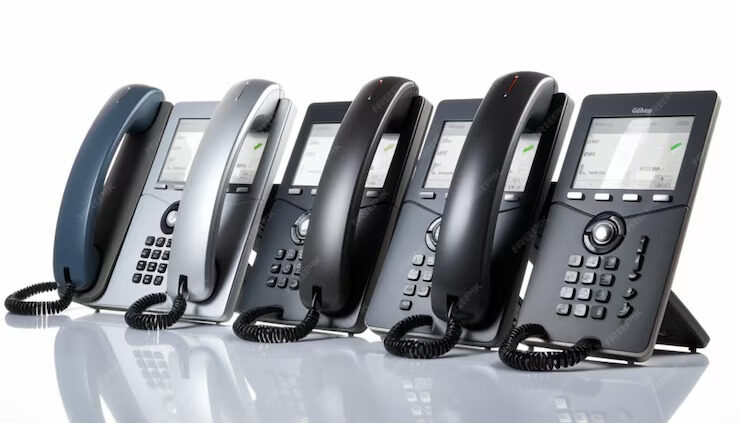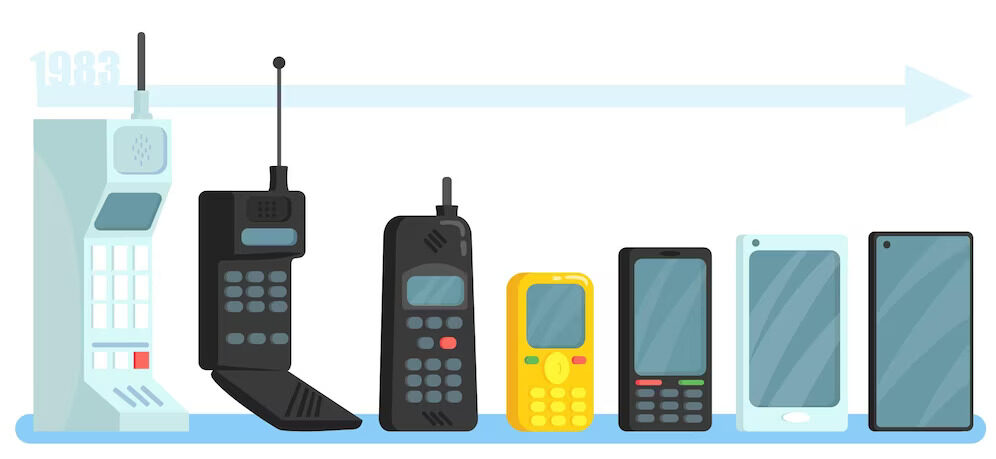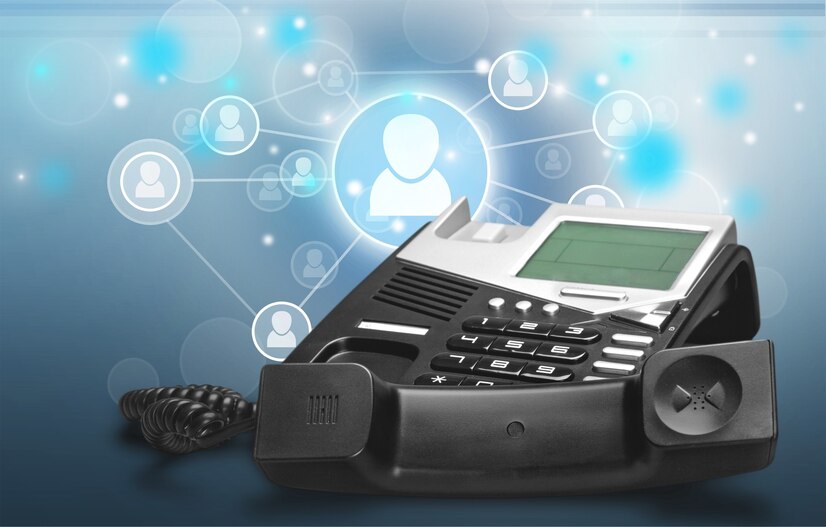Business Phone Systems: History, Applications, & Key Features
- 1 Business Phone Systems
- 1.1 A Brief History
- 1.2 What Industries Does It Support?
- 1.3 Best Features and Services
- 1.3.1 Unified communication
- 1.3.2 Video conferencing
- 1.3.3 Call routing and auto attendants
- 1.3.4 Mobile applications
- 1.3.5 Voicemail transcription
- 1.3.6 Analytics and reporting
- 1.3.7 Integration with business applications
- 1.3.8 Security and compliance
- 1.4 Takeaway
Business Phone Systems
In the modern business landscape, effective communication is essential for success. Business phone systems (BPS) have evolved into complex tools that empower organizations to streamline communication, boost productivity, and provide superior customer service. In this article, we’ll take a look at the evolution of business phone systems, explore the diverse industries they support, and delve into their standout features and services.
A Brief History
Business phone systems have come a long way from their humble beginnings. While we won’t delve into extensive historical details, it’s important to recognize their evolution.
Early telephony and manual switchboards
In the late 19th century, Alexander Graham Bell’s invention of the telephone paved the way for the first rudimentary business communication systems. Early phone systems relied heavily on manual switchboards operated by human operators who connected calls. This era marked the inception of business telephony.
Electronic PBX systems
The 1960s ushered in the era of electronic Private Branch Exchange (PBX) systems, which revolutionized business communication. PBX systems allowed for internal extension dialing and reduced the reliance on operators, significantly improving efficiency.
VoIP revolution
The late 20th century witnessed the emergence of Voice over Internet Protocol (VoIP) technology. VoIP systems enable voice communication over the internet, offering cost-effective, high-quality calls and paving the way for the digital transformation of business communication.
What Industries Does It Support?
Business phone systems are remarkably versatile and find applications across a wide spectrum of industries.
Here are some key sectors where these systems play a crucial role:
Healthcare: In healthcare, where timely communication can be a matter of life and death, business phone systems are vital. They facilitate doctor-patient communication, interdepartmental coordination, and appointment scheduling, ensuring efficient patient care.
Retail: Retail businesses rely on business phone systems for customer inquiries, order processing, and inventory management. VoIP systems help retailers establish call centers, enhancing customer service and support.
Financial institutions: Entities like banks and investment firms use VoIP for secure and compliant communication with clients. Features like call recording and encryption ensure data integrity and regulatory compliance.
Hospitality: Hotels and restaurants leverage business phone systems for reservations, guest services, and internal communication. Voicemail and automated attendants enhance the guest experience.
Education: Educational institutions employ these systems to manage communication with students, parents, and staff. Virtual classrooms and online collaboration tools are becoming increasingly integrated.
Manufacturing: Manufacturing companies use VoIP for supply chain management, order processing, and real-time collaboration between production teams and logistics.
IT and tech: In the tech industry, business phone systems support remote teams, facilitate customer support, and streamline project management. Integration with CRM software enhances client interactions.
Legal: Law firms depend on these systems for client consultations, case management, and secure communication. Call tracking and analytics aid in client relationship management.
If you’re looking for a business phone service that’s a good fit for your company, we suggest beginning your research by exploring this list of the top business phone system providers.
Best Features and Services
The evolution of business phone systems has introduced a plethora of features and services that cater to diverse business needs.
Here are some standout elements:
Unified communication
Modern business phone systems offer unified communication platforms that integrate voice, video conferencing, instant messaging, and email. This unified approach simplifies communication and fosters seamless collaboration.
Video conferencing
The incorporation of high-definition video conferencing enables businesses to conduct face-to-face meetings regardless of geographical locations. Screen sharing and real-time collaboration enhance productivity.
Call routing and auto attendants
Advanced call routing features ensure efficient call handling by directing incoming calls to the right department or individual. Automated attendants offer professional greetings and options for call routing.
Mobile applications
Mobile apps and softphones extend VoIP to smartphones and laptops, allowing employees to make and receive business calls, ensuring connectivity on the go.
Voicemail transcription
Voicemail transcription services convert audio messages into text, making it easier to manage messages and respond promptly, even when away from the office.
Analytics and reporting
Robust analytics and reporting tools provide insights into call patterns, performance metrics, and customer interactions. This data-driven approach informs strategic decisions and optimizes operational efficiency.
Integration with business applications
Business phone systems often integrate seamlessly with CRM systems, email platforms, and project management tools. This integration centralizes communication and enhances productivity.
Security and compliance
To safeguard sensitive data and ensure compliance with industry regulations, business phone systems implement encryption, access controls, and compliance features, making them suitable for businesses with stringent security requirements.
If you’re interested in accessing valuable resources and staying updated on the latest rulings, regulations, and technological advancements, we suggest visiting the Federal Communications Commission’s (FCC) website.
Takeaway
The significant evolution of business phone systems has firmly solidified their place in today’s corporate landscape. Their application spans across many industries, including healthcare, retail, finance, and education. Equipped with an array of features like unified communication and video conferencing, these systems significantly enhance business operations and elevate customer service standards. As technology continues its relentless march forward, business phone systems are going to improve further, enabling companies to communicate even more effectively.























